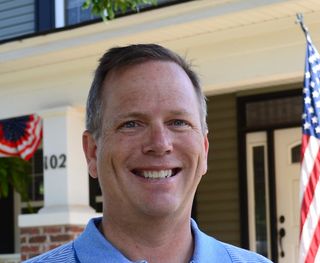It happens more often than one would like – claimants dying before the VA approves their claim. What do you do when this occurs? Is there anything you can do to preserve the benefit your firm worked so hard to obtain for the client, or does the claim die with the claimant?
The answer depends on two factors: 1), whether the claimant has a surviving spouse; and 2), how far along in the process the VA claim was on the date of death.
 It matters if the claimant has a surviving spouse or other dependent, because that individual may be able to take over a pending claim as a substitute claimant. Section 5121A, (a)(1) of Title 38 of the U.S. Code regarding Substitution in Case of Death of Claimant states, “If a claimant dies while a claim for any benefit under a law administered by the Secretary, or an appeal of a decision with respect to such a claim, is pending, a living person who would be eligible to receive accrued benefits due to the claimant under section 5121 (a) of this title may, not later than one year after the date of the death of such claimant, file a request to be substituted as the claimant for the purposes of processing the claim to completion.” In the case of the death of a veteran, the living persons who would be eligible to receive accrued benefits would be, in this order:
It matters if the claimant has a surviving spouse or other dependent, because that individual may be able to take over a pending claim as a substitute claimant. Section 5121A, (a)(1) of Title 38 of the U.S. Code regarding Substitution in Case of Death of Claimant states, “If a claimant dies while a claim for any benefit under a law administered by the Secretary, or an appeal of a decision with respect to such a claim, is pending, a living person who would be eligible to receive accrued benefits due to the claimant under section 5121 (a) of this title may, not later than one year after the date of the death of such claimant, file a request to be substituted as the claimant for the purposes of processing the claim to completion.” In the case of the death of a veteran, the living persons who would be eligible to receive accrued benefits would be, in this order:
- The veteran’s spouse;
- The veteran’s children (in equal shares);
- The veteran’s dependent parents (in equal shares).
In the case of the death of a surviving spouse or remarried surviving spouse, the benefits would be payable to the children of the deceased veteran, and in the case of the death of a child, they would go to the surviving children of the veteran who are entitled to death compensation, dependency and indemnity compensation, or death pension. This type of substitution is requested by filing a VA form 21-0847 Request for Substitution of Claimant upon Death of Claimant. This form must also be accompanied by the actual application for accrued benefits. There are two VA forms that are used to apply for accrued benefits: the VA form 21-534EZ and the 21-601. The VA form 21-534EZ has multiple uses, one of which is applying for accrued benefits for the surviving spouse or other dependent of a deceased claimant.
The VA form 21-601 is solely for applying for accrued benefits, as its name “Application for Accrued Amounts due to a Deceased Beneficiary” makes clear, but it is intended for those who are not a surviving dependent of a deceased veteran or other claimant. The prerequisite for this type of claim is that the person seeking accrued benefits must have paid or owe for the claimant’s last illness and burial expenses out of their own pocket. As described in the VA Fact Sheet on “Accrued Benefits and Substitution,” “If there are no living persons who are entitled to accrued benefits on the basis of relationship, VA will pay accrued benefits to reimburse the person(s) who paid for or who are responsible to pay for the Veteran’s last illness and burial expenses. . . . The amount of accrued benefits payable as reimbursement is limited to the actual amount of expenses paid, and the amount of accrued benefits available.”
It matters also at what point in the process the VA claim was on the date of death, because that can determine whether, in fact, accrued benefits even exist. Per page 5 of the directions for VA form 21-534EZ, accrued benefits are benefits that “were due the veteran based on existing ratings, decisions, or evidence in VA's possession at the time of death, but the benefits were not paid before the veteran's death.” It may seem obvious, but if nothing has been filed with the VA, there is no such evidence and thus there are no potential accrued benefits. This is another very important reason why you should file a claim as soon as a client qualifies.
This would also seem to suggest that if only an Intent to File/Informal Claim has been filed, accrued benefits might not be payable. Fortunately, this should not affect the surviving dependent of a veteran as long as they are eligible in their own right for VA death pension and file within a year of the death of the veteran. The VA should grant accrued benefits as well as award death pension back to the month of the veteran’s death, regardless of what was on file with the VA at the time of death. For an unrelated third party, it is unclear whether the VA will consider a VA form 21-601 after the filing of an Intent to File/Informal Claim, but before the filing of the formal claim. However, be sure to supply the VA form 21-527EZ with any accrued benefits claim if that form was never filed with the VA.
If a client dies after the formal claim has been filed, but before the receipt of funds in the claimant’s account, an accrued benefits claim can be submitted even if the VA has not started processing the claim. As long as the information on file with the VA supports the deceased claimant’s eligibility, benefits retroactive to the original effective date could be claimed. Again, the identity of the survivor will determine what form is used: the 21-534EZ for a surviving dependent of the claimant, or the 21-601 for all others, including unrelated third parties.
Given that there is no way to control if and when your client dies, how do you prepare your firm as well as your client’s family to deal with such unfortunate circumstances? The best way is to arm yourself with the knowledge of the options at every stage in the VA claim process when a claimant dies. Also, remind your clients at every stage to keep you informed of any decline in the claimant’s health. That way, when your firm gets that phone call or email with the bad news of a client’s death, you will be ready to guide your client’s family in the right direction to preserve the benefit that that client did not live to receive.
Did you know we offer FREE "VA Tech School" the first Wednesday of every month! Join us Wednesday, October 7th at 12 EST where Victoria L. Collier will be talking about "Denied Benefits Due to Transfers of Assets: How to Appeal and Win." Click here to register.
By Sabrina A. Scott, Paralegal, The Elder & Disability Law Firm of Victoria L. Collier, PC and Director of VA Services for Lawyers With Purpose.
Victoria L. Collier, Veteran of the United States Air Force, 1989-1995 and United States Army Reserves, 2001-2004. Victoria is a Certified Elder Law Attorney through the National Elder Law Foundation; Author of “47 Secret Veterans Benefits for Seniors”; Author of “Paying for Long Term Care: Financial Help for Wartime Veterans: The VA Aid & Attendance Benefit”; Founder of The Elder & Disability Law Firm of Victoria L. Collier, PC; Co-Founder of Lawyers with Purpose; and Co-Founder of Veterans Advocate Group of America.
 What is your favorite LWP tool?
What is your favorite LWP tool?









